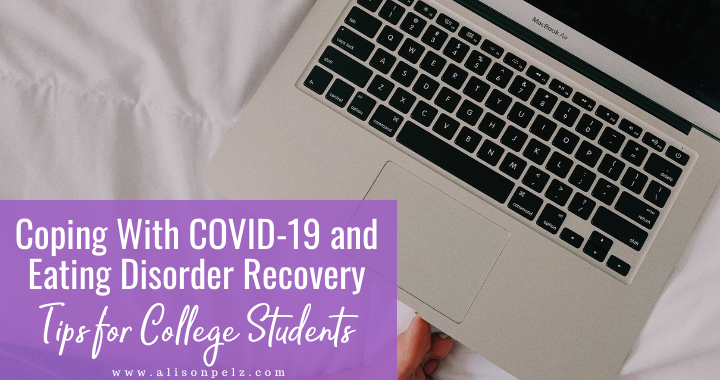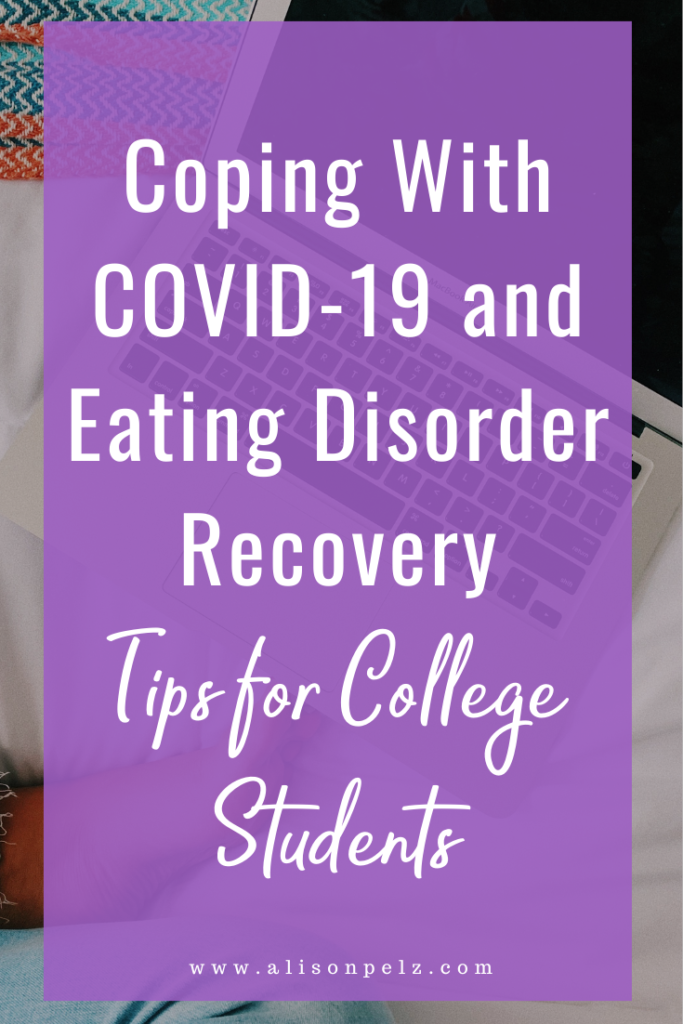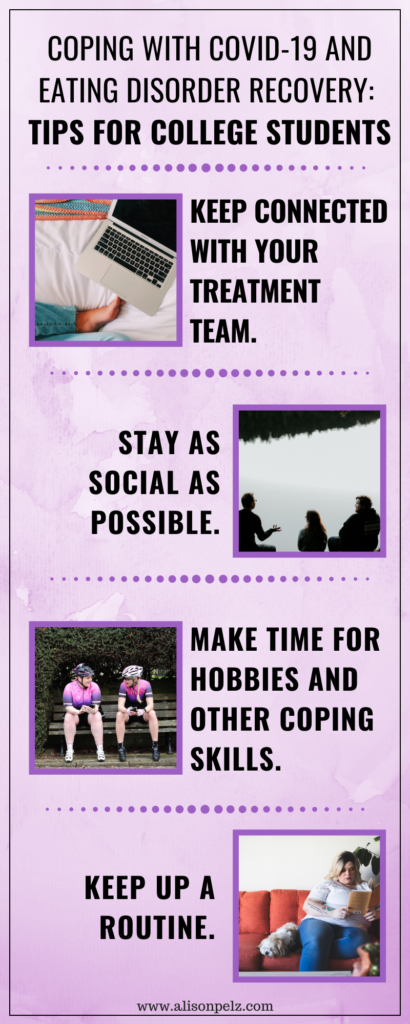Let’s face it – starting a new year in college during the COVID-19 pandemic is rough. College life looks much different than it used to, with virtual classes and less socializing, to name a few things. If you add an eating disorder into the mix, it can make starting the semester feel downright daunting.
If your eating disorder symptoms have increased since the pandemic started you are not alone. Eating disorder behaviors are a way to manage and cope with stress, so more stress can equal the exacerbation of eating disorder symptoms.
Furthermore, the nature of physical distancing can lead to feelings of worry, sadness, hopelessness, and loneliness which also can trigger eating disorder behaviors, including dietary restriction, purging, binge eating, and overexercising.
Starting a new semester (or starting college for the first time) is associated with many “positive feelings” and excitement. However, along with these positive feelings, students may experience feelings of isolation, worry, and sadness, again exacerbating eating disorder symptoms.
Remember it is normal to be experiencing more stress, worry, and sadness during the pandemic. However, there are tools that you can use to manage your feelings.
Below are some tips to help you cope with stress, the pandemic, and your eating disorder:
- Keep connected with your treatment team.
- Whether you are doing treatment in person or virtually, keeping regularly scheduled appointments is key to keeping your eating disorder recovery on top of the priority list. If you feel like you need more support during this time, ask your team about more frequent visits and/or attending virtual groups. To learn more about eating disorder treatment teams or how to get treatment, click here.
- Stay social.
- College with a side of COVID can be very isolating especially if you participating in virtual learning. It is not uncommon to experience an increase in loneliness. Social connection with family and friends can help reduce feelings of loneliness, sadness, and worry. Keep socializing in whatever way feels safe to you a top priority.
- Make time for hobbies and other coping skills.
- Coping skills and hobbies can help manage stress and uncomfortable feelings such as worry, sadness, and anger. Healthy coping skills are activities that you can help you positively manage stress. These can include talking with a friend, spending time outside, playing with a pet, reading, cleaning, doing a puzzle, praying or meditating, or volunteering, to name a few. Hobbies such as crafting, art, photography, and the like can also help reduce feelings of stress.
- Keep a routine.
- Having a routine can help reduce stress levels by adding structure and organization to your day, even during the pandemic. Having a general—but not rigid—routine around eating, sleeping, socializing, and studying can be helpful in your recovery from your eating disorders and generally improve mental health.
Remember that it is normal for eating disorder symptoms to increase during times of stress, and the COVID-19 pandemic is a very stressful time. By practicing the tools above, you can learn ways to reduce your stress and continue with recovery.
If you would like to learn how I help clients manage stress or you need help in your eating disorder recovery, please click here to schedule a free 15-minute phone consultation.


